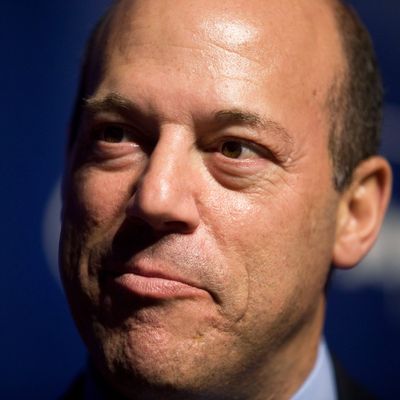
After the U.S. killed Iranian Revolutionary Guard commander Qasem Soleimani on Thursday, many Republicans expressed simple satisfaction at the killing, with some also predicting that the drone strike was not only the morally correct course of action, but would actually lead to greater, not less, peace in the region. A good number of the Republicans offering such assurances — or at least not outlining the possible downsides of such a rash move — were key voices back in 2003, when George W. Bush’s administration invaded Iraq, setting off the debacle that not-so-indirectly led to Thursday’s events. Not everyone who was a cheerleader back then is onboard today; David Frum, who coined the phrase “axis of evil” as Bush’s speechwriter and has since become a fervent critic of President Trump, seemed to voice skepticism that the Trump administration has a plan for the aftermath of its decision. But he was an exception. Below, a brief rundown of Iraq War fans who are singing a similar tune on Iran.
Ari Fleischer
During the 2003 invasion, Fleischer served as George W. Bush’s press secretary, proving a master of deflection and dissembling as the invasion spun out of control. Even as neoconservative foreign-policy views have fallen out of fashion with the rise of President Trump, Fleischer has hardly pivoted in his views in the years since. On Thursday night on Fox News, Fleischer echoed a notorious Iraq War prediction from then Vice-President Dick Cheney — and his own prophecy from that time that American forces would be greeted as “liberators.”
John Bolton
One of the most intervention-friendly figures in the Republican Party, Bolton is the rare person who still thinks invading Iraq was a good idea, having championed the idea as the chair of a neoconservative group as early as 1998. Though he was pushed out as national security adviser to President Trump last year, in large part over his pugilistic style — and has been critical of what he sees as the administration’s weakness on North Korea — he cheered Thursday’s attack, and hailed it as a possible first step toward “regime change.”
Karl Rove
While not directly involved in foreign policy, Rove helped sell the war from a domestic perspective, most importantly as the leader of George W. Bush’s reelection campaign in 2004. Hours after the Soleimani strike, he was on Fox News (along with Bolton) explaining the intricacies of foreign policy as if he had unblemished credibility on the issue.
Lindsey Graham
A regime-change fan to rival Bolton, Graham was an enthusiastic proponent of war with Iraq in 2003. But in 2019, he’s much more powerful than he was back then, and Graham has been nudging his once-rival, now BFF, President Trump. Throughout Trump’s first term, the South Carolina senator has consistently pushed the president to take even more aggressive action on Iran. Graham, who said he was briefed on the Soleimani mission beforehand (unlike senior Democrats or America’s closest allies abroad), framed the killing as a defensive measure but has not raised the possibility that the Iranians may not see it that way.
The Cheneys
So far, former Vice-President Dick Cheney, who helped mastermind the Iraq invasion, has not commented on Soleimani’s killing. But his daughter, who has inherited her father’s taste for regime change, is predictably all in.






























